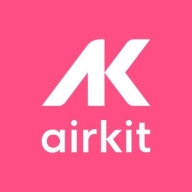

Microsoft Power Apps and Airkit are competing in the custom application creation category with minimal coding. Microsoft Power Apps has an edge due to its integration with other Microsoft services and pricing model, appealing to users in the Microsoft ecosystem. Airkit offers advanced customer experience features, justifying its higher cost.
Features: Microsoft Power Apps offers robust integration capabilities with its application suite, built-in AI features, and a low-code environment. Airkit provides customer journey orchestration, personalization tools, and focuses on optimizing user interactions. Microsoft Power Apps' strength is in integration, while Airkit emphasizes customer experience.
Ease of Deployment and Customer Service: Airkit provides a cloud-based deployment model designed for flexibility and quick implementation, with comprehensive customer service. Microsoft Power Apps integrates within Microsoft's cloud ecosystem, supported by a wide knowledge base and community support. Airkit highlights agile deployment with personalized support, while Microsoft relies on its extensive ecosystem for smooth implementation.
Pricing and ROI: Microsoft Power Apps generally presents a lower setup cost with a tiered pricing strategy and integration benefits, ensuring steady ROI through scalable solutions. Airkit's pricing is higher, yet it provides substantial ROI through its enhanced customer interaction features. The difference lies in Microsoft's cost-effectiveness and scalability versus Airkit's premium for customer experience management.
| Product | Market Share (%) |
|---|---|
| Airkit | 0.7% |
| Genesys Cloud CX | 3.6% |
| Salesforce | 3.1% |
| Other | 92.6% |
| Product | Market Share (%) |
|---|---|
| Microsoft Power Apps | 9.5% |
| ServiceNow | 6.5% |
| Oracle Application Express (APEX) | 6.0% |
| Other | 78.0% |
| Company Size | Count |
|---|---|
| Small Business | 31 |
| Midsize Enterprise | 17 |
| Large Enterprise | 50 |
Airkit is a low-code platform designed for creating adaptable customer experiences, enabling organizations to rapidly deploy applications that enhance interaction efficiency. Its intuitive design focuses on streamlining processes and improving user engagement through innovative digital solutions.
Airkit offers a comprehensive suite of tools that enables businesses to transform their digital engagement strategies. Users can build applications tailored to customer needs with minimal coding. It empowers teams to automate workflows and integrates with existing systems seamlessly, ensuring optimal functionality and improving service delivery. With a focus on scalability and flexibility, Airkit supports organizations in delivering consistent, high-quality customer interactions in real-time.
What are Airkit's most important features?Airkit is effectively implemented across sectors like financial services and retail, where quick adaptation to customer demands is crucial. In financial services, it is utilized for automating customer onboarding and enhancing client interactions. Retail businesses use it to personalize shopping experiences, offering seamless support across digital and in-person platforms, meeting a diverse array of industry-specific needs.
Microsoft Power Apps is a rapid application development software and low-code development platform. The solution consists of a suite of apps, services, connectors, and a data platform. It provides an environment for building custom apps which is suitable for different businesses.
Microsoft Power Apps allows users to not only build applications, but also connect them to Microsoft's other sources, including the underlying data platform Microsoft Dataverse, as well as online and on-premise sources such as SharePoint, Dynamics 365, and Microsoft 365. The applications built using Microsoft Power Apps have a responsive design that makes them suitable for work in browsers and on mobile applications on different devices.
The no-code side of the product makes it suitable for complete beginners to app building, allowing them to easily create fully functional applications with many features. The solution also has a specialized platform for developers where specialists can access data and metadata, create custom connectors, integrate with external data, and apply business logic. The solution allows users to create three types of apps: canvas, model-driven, and portal. They are made using:
Microsoft Power Apps Features
The three different design tools of the solution, Power Apps Studio, App Designer, and Power Apps Portals Studio, come with various features which allow users to utilize the tools. Some of these features include:
Microsoft Power Apps Benefits
The product brings various benefits to organizations and individuals who utilize it. Some of the biggest advantages of Microsoft Power Apps include:
Reviews from Real Users
An IT Specialist (INFOSEC) at a government appreciates this tool because it is low-code, low learning curve, and reduces manpower.
Rafael T., a data engineer at NTT Security, likes Microsoft Power Apps, because it is great for making apps quickly, has helpful support, and integrates with Power BI.
We monitor all Customer Experience Management reviews to prevent fraudulent reviews and keep review quality high. We do not post reviews by company employees or direct competitors. We validate each review for authenticity via cross-reference with LinkedIn, and personal follow-up with the reviewer when necessary.